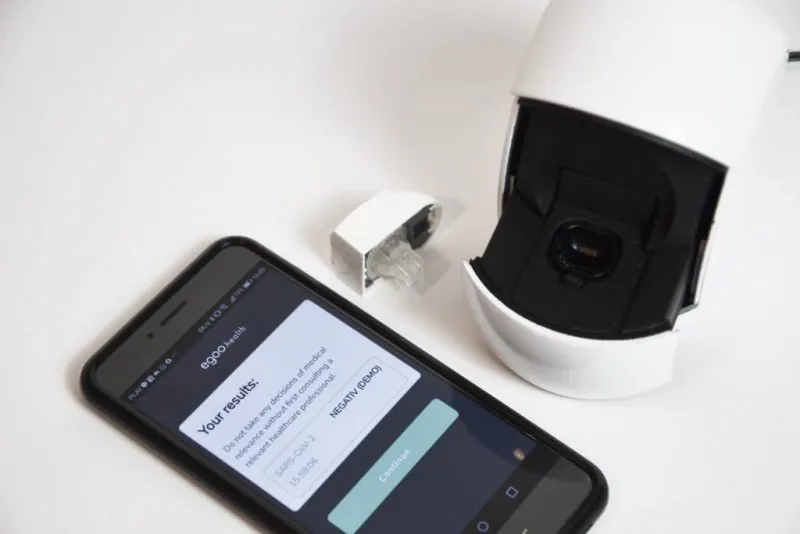Join us at Qt C++ Warsaw Meetup - 21.08.2025
Sign up for free!egoo.health
egoo.health is a cross-platform, mobile application that brings home users functionalities of Egoo - platform for accurate bio-marker testing. We are proud to be a part of this project and that is why we want to present how Scythe Studio worked to make this vision a reality.
Technologies used
egoo.health – Qt mobile application for medical industry
egoo.health is a cross-platform, mobile application that brings home users functionalities of Egoo – platform for accurate bio-marker testing. We are proud to be a part of this project and that is why we want to present how Scythe Studio worked to make this vision a reality.
Meet Egoo
Before getting into details on the workflow, let’s take a closer look at what the project was about. Egoo is the world’s first connected molecular and immuno diagnostics self-testing platform that covers most assay methodologies and provides short analyzes time. All of that packed in a small form factor, without compromising the clinical-grade quality.
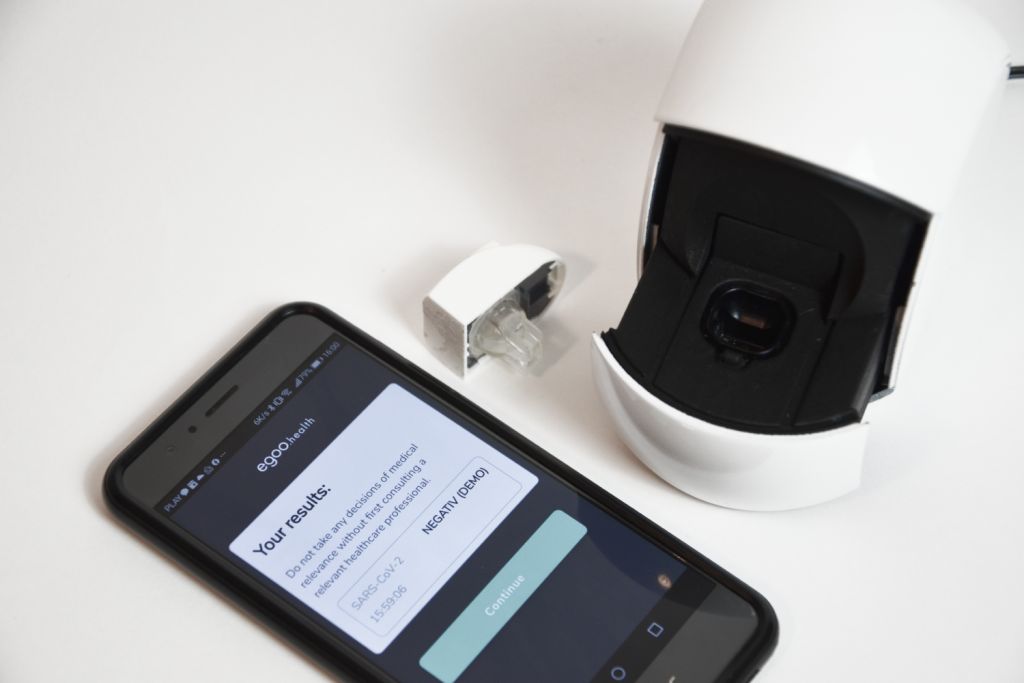
This high dose of specialized nomenclature might have made you dizzy, so let’s put that into simple words. It’s an instrument that allows to perform several different measurements for blood biomarkers like Hemoglobin/CRP or diseases tests, like SARS- CoV-2, in simple, fast, reliable and user-friendly way. Egoo was created by QLife Holding – med-tech group that strives to revolutionize the market for clinical biomarker and virus tests.
Egoo devices were already, successfully used in the field. They allowed to host 2020 European Women’s Handball Championship and 2020 Superliga football matches in Denmark in a safe environment thanks to provided COVID-19 tests functionality. Egoo has also been noticed by the medical world and awarded by Med-Tech Outlook for being the top 2021 in vitro diagnostic solution providers in Europe.
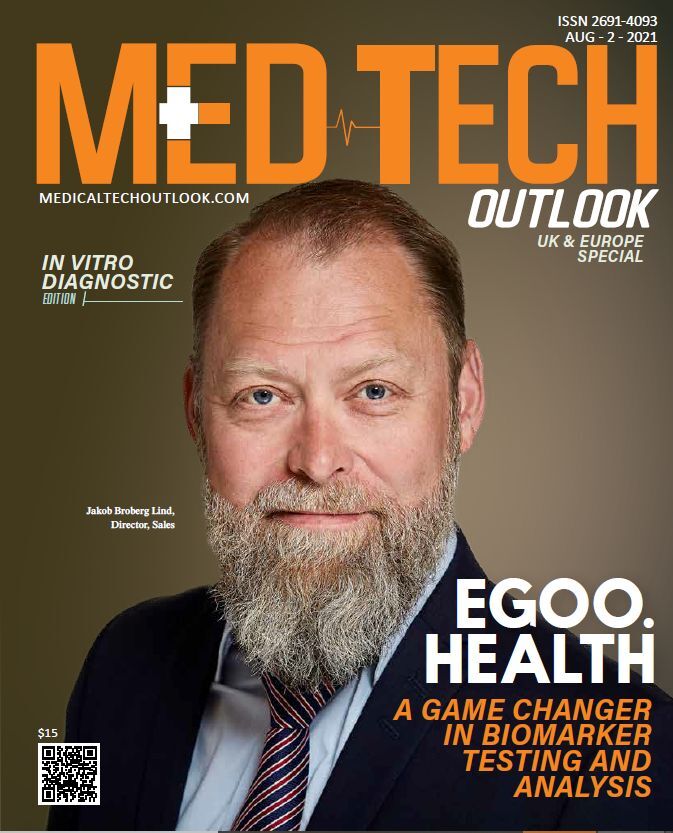
Our responsibilities
What else was there to do with such a great product? As Egoo instruments don’t contain any physical interface, like buttons or touchscreen, on their own, they can be operated using client applications. At that moment only a desktop client application, that was targeted to medical professionals, was available. The goal was to create new application that will bring the Egoo to the home users. This is where the Scythe Studio came into action.
The home-user application was meant to be a mobile, cross-platform client application – this is why it was called egoo.health. Its purpose was to allow all of the home users to access all of the Egoo functionalities, as well as store and display results of the tests, using their smartphones. All of that with eye-catching, yet clear and minimalistic graphical user interface.
Our approach
With such requirements Qt framework was an excellent solution that matched all of the requirements. The logic of the application was implemented using the C++ language in order to provide the best performance and portability. This way we could reuse existing C++ based libraries shared between other client-applications and contribute to them, by extending their functionalities.
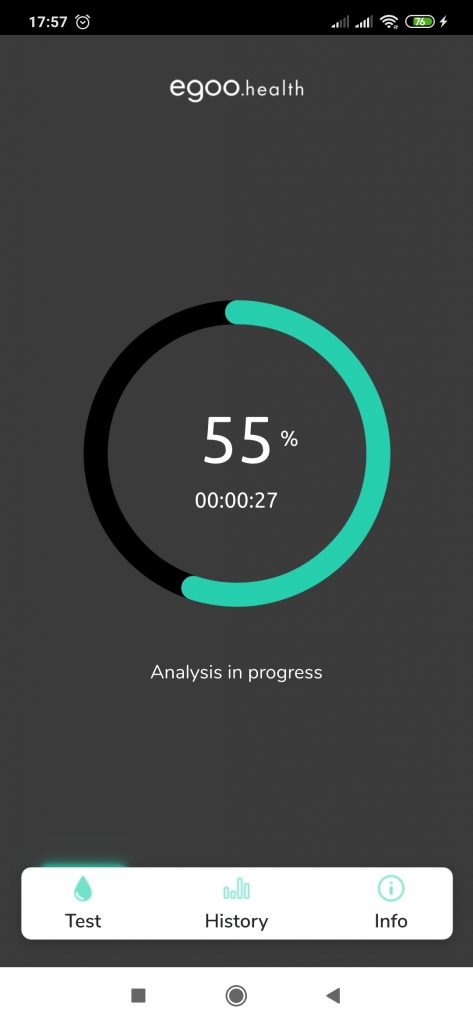
The GUI was created using the Qt Quick module and QML language that provided rich and eye-catching look of the application. App fronted is also a thing that shines bright in case of efficiency. QML is written in C++, runs natively on target devices and uses hardware acceleration. It is essential in cases where resources are scarce – for example, on embedded devices. The language also benefits from the Just-In-Time and Ahead-Of- Time compilation.
Challenges and Achievements
The first challenge in this project was providing the compatibility layer for the business logic between “pure” C++ and Qt classes. This approach was requested in order to maintain support for the non-Qt applications that used those libraries. Elegant solution for this problem was writing Qt wrappers for the C++ libraries in order to enrich them with benefits like slots and signals and easy exposition to QML.
Another challenge that we encountered was the functionality of scanning QR codes from the capsules. The main problem was that at this time there was no good solution for doing it in QML. We decided that the best way to do it is to write our own wrapper for the Zxing library. This feature was the beginning for the SCodes library that you can find on Github.
Outcome of the project
Thanks to the cross-platform nature of Qt, time-to-market was greatly reduced as we could deploy both Android and iOS applications using a single codebase. There was no need for an additional team or switching technologies to provide app for those two disparate operating systems. What is also worth mentioning is that while going cross-platform we have not sacrificed performance for the number of platforms available. Qt applications provide near-native performance.
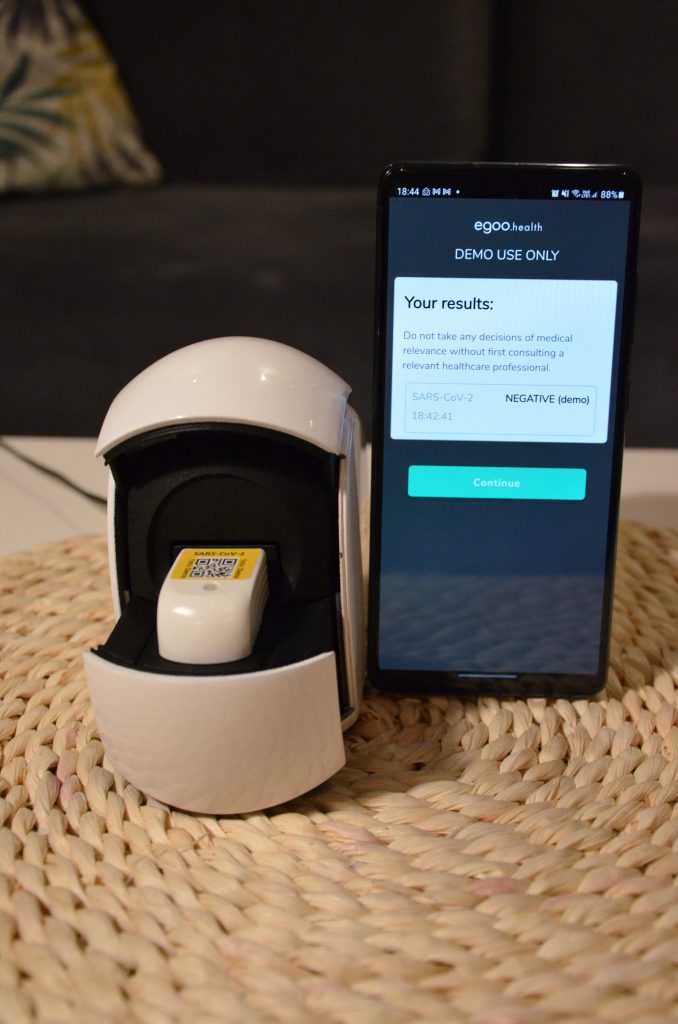
Another factor that positively influenced not only egoo.health application, but also other projects was possibility to reuse and improve shared C++ library. This way the huge amount of time was saved while implementing the egoo.health, while other projects could benefit from changes added during mobile app development. Such C++ library also provides possibility to easily integrate egoo.health functionalities into new client applications in the future.
Client testimony
Let’s hear what Steven Clauwaert, director of software engineering and healthcare at Qlife, has to say about working on egoo.health, together with Scythe-Studio:
“Qlife has been using Scythe Studio to develop applications with Qt for both desktop, Android, and iPhone apps. Scythe Studio has done an excellent job, the company is very punctual, and they have qualified developers with good coding qualifications.
Qlife has had the opportunity to work together with Scythe Studio for the last couple of years and they have provided a stable external working force to supplement the needs of Qlife.“
Recent projects
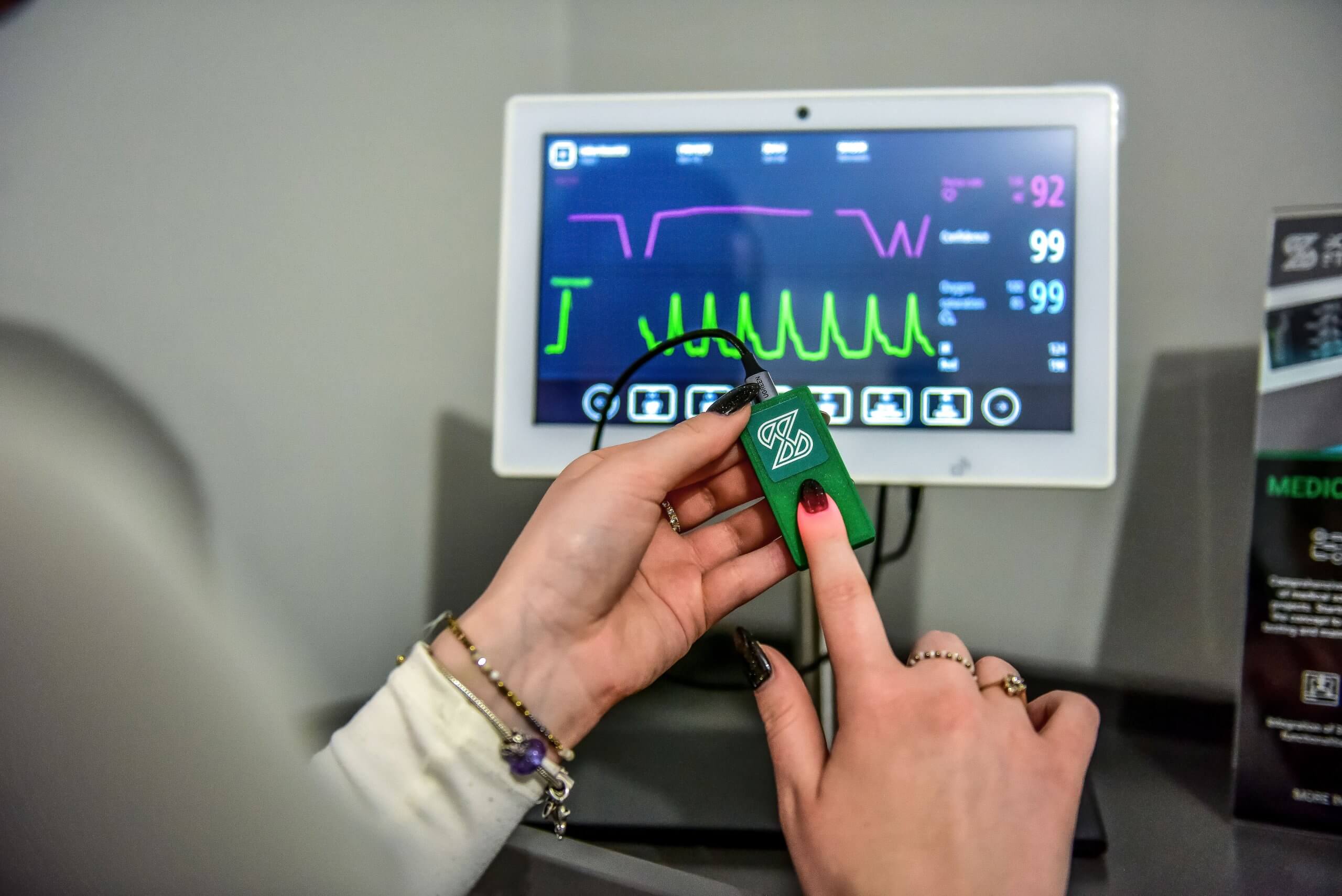
Patients Vital Parameters Monitor
The patient vital signs monitor features a pulse oximeter and heart rate sensor. It consists of a sensor and a microcontroller. It communicates with the sensor, gets data from it and sends it via a USB cable to a computer.
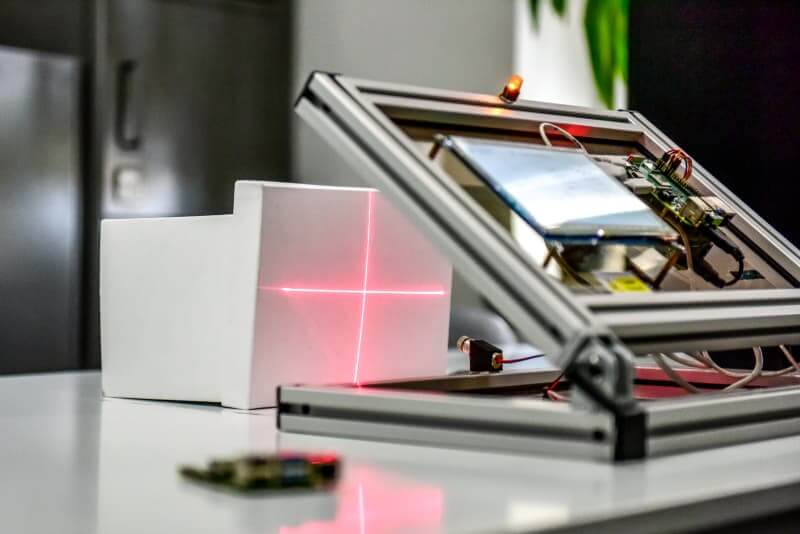
Embedded Application for Medical Laser Device
Application that works on embedded device and it purpose is to simulate the operation of a medical laser. The user can select one of the pre-prepared operations, or create their own with pre-set parameters. The application simulates the course of the procedure.
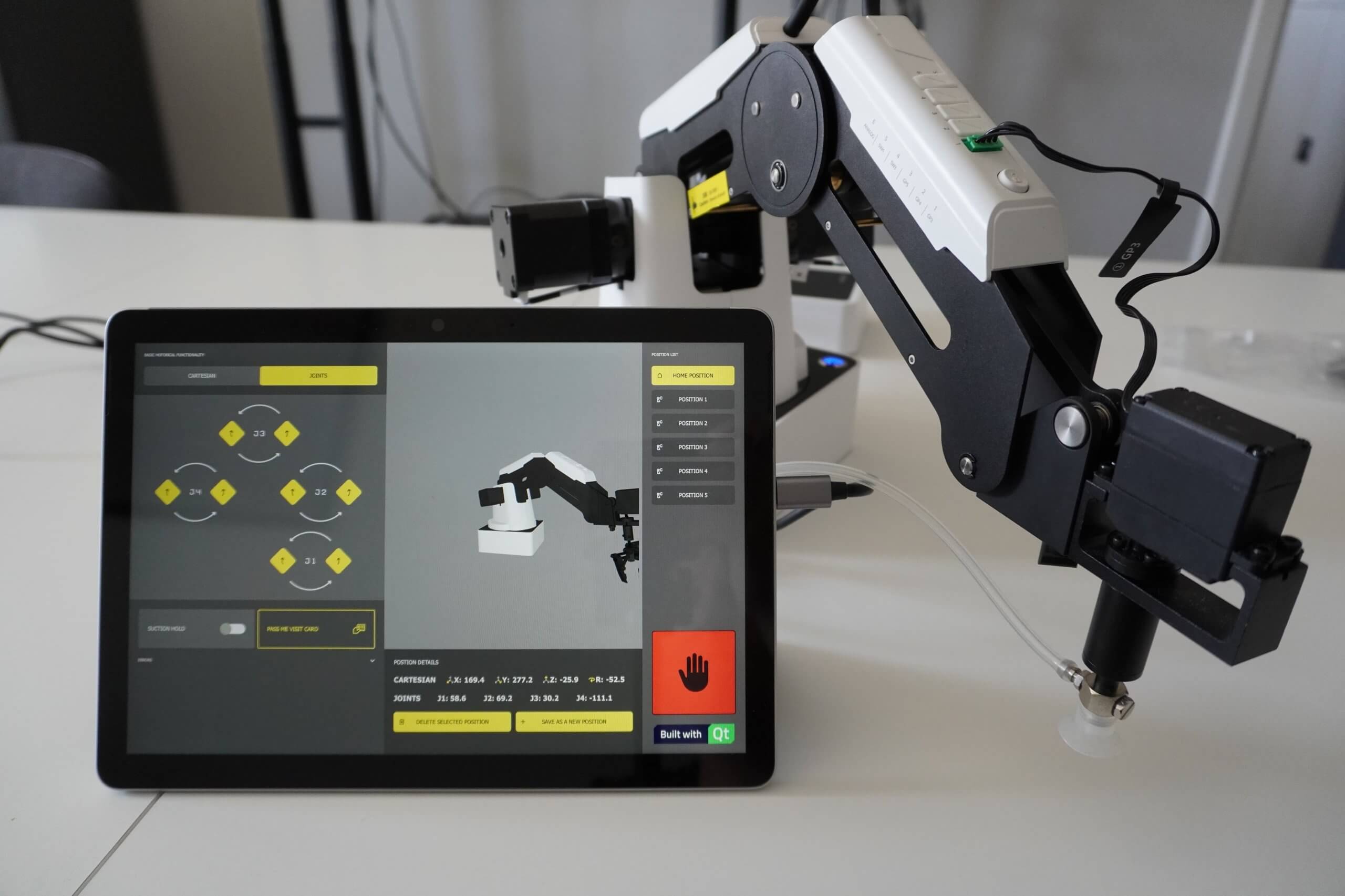
Robot Software – Digital Twin project
Cross-platform application designed to communicate with and control the Dobot Magician robotic arm. The operation of the robotic arm, is also assisted by a 3D model fully reflecting the position and alignment in real time of the physical model.
